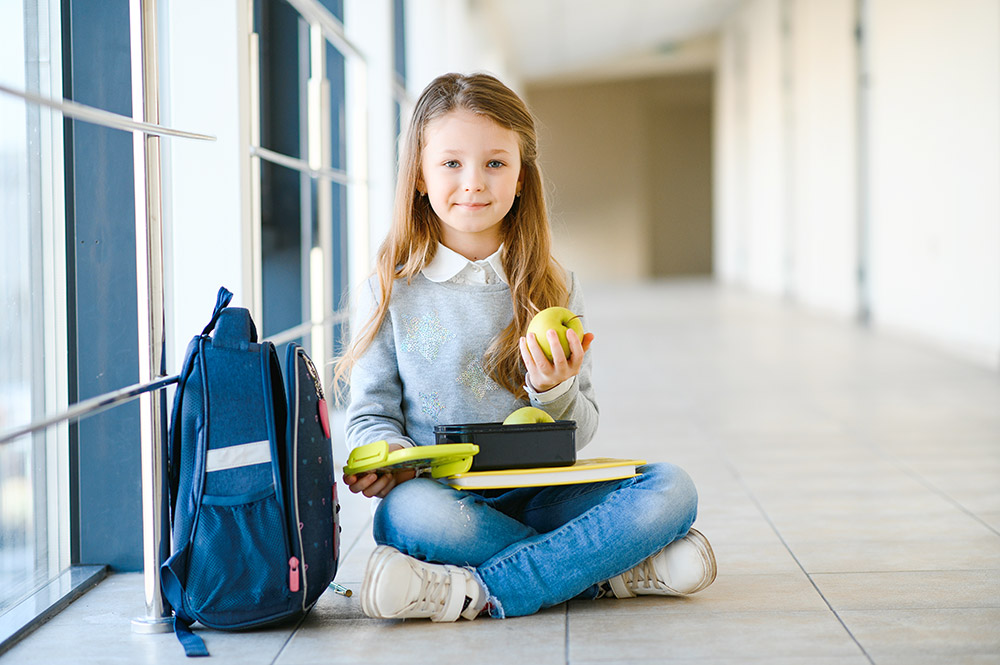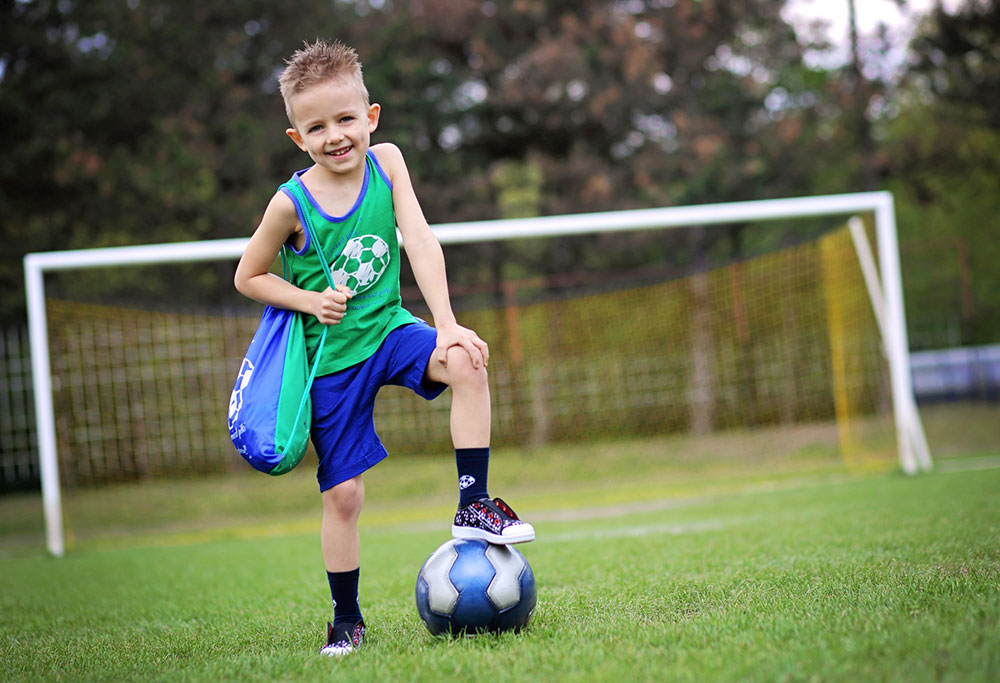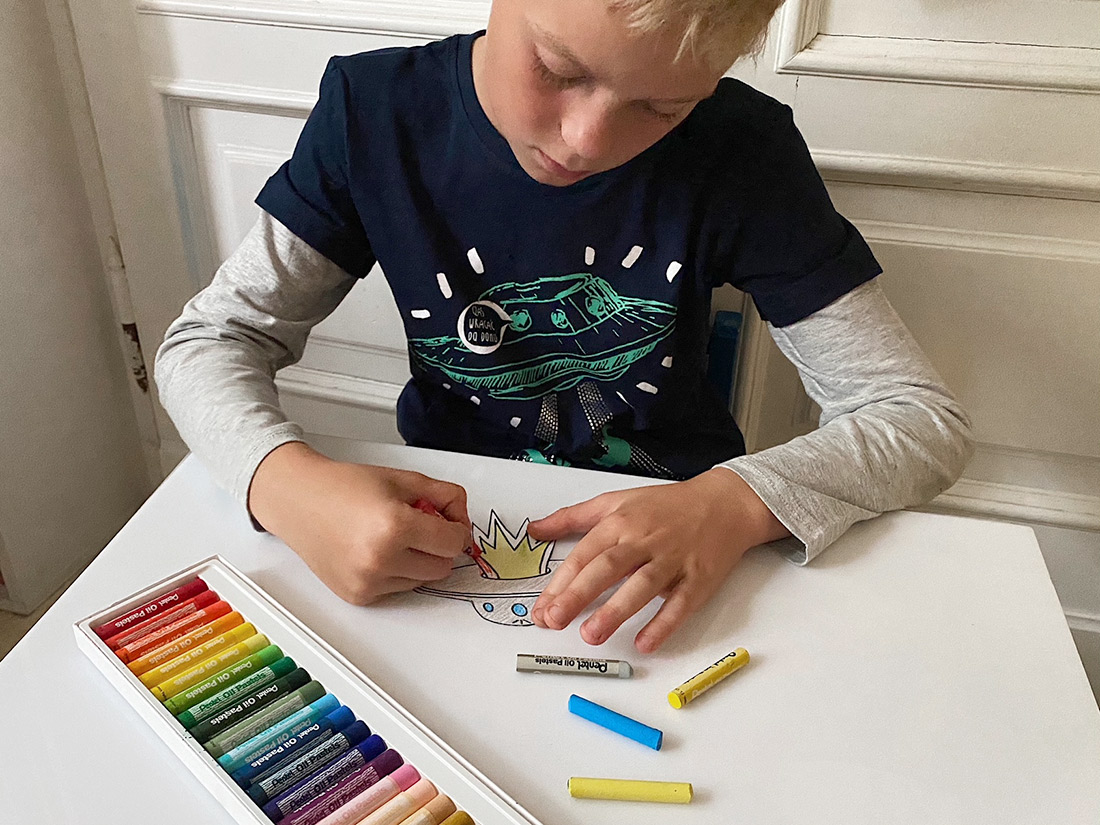
With the arrival of a new school year, many families must reorganize their daily routines to accommodate the needs of their children and students. This is an important time in a young person's life, requiring proper preparation, both mentally and physically. A healthy lifestyle plays a key role in this process. Healthy eating, exercise, and regular sleep are key to well-being and excellent academic performance. Discover what else impacts children's physical and mental health.
Healthy eating
One of the main pillars of a healthy lifestyle is proper nutrition. During periods of increased mental activity, such as learning, children's bodies need an extra dose of energy. Breakfast is one of the most important meals of the day , so it shouldn't be skipped. It's important to ensure it's balanced and contains the right amount of carbohydrates, proteins, and fats. An example would be a whole-grain sandwich with avocado, egg, and fresh vegetables.  Additionally, it's important to pay attention to meal regularity. Children should eat every 3-4 hours to provide their bodies with essential energy and nutrients
Additionally, it's important to pay attention to meal regularity. Children should eat every 3-4 hours to provide their bodies with essential energy and nutrients .
Lunch at school or preschool should be light and nutritious . Fruit, natural yogurt, or nuts are good choices. Most educational institutions also offer healthy lunches, which are worth considering, especially if your child is there for most of the day or has additional activities immediately after school or preschool.
Physical activity
"Movement is health" – a phrase whose truth is confirmed by numerous studies. Physical activity benefits not only children's physical but also their mental well-being . As we head back to school, it's worth encouraging children to spend time outdoors, participate in sports, or even just go for a walk.  Physical activity can also be a great way to connect with peers after the summer break. Team sports, such as soccer or volleyball, help develop cooperation skills and build interpersonal relationships.
Physical activity can also be a great way to connect with peers after the summer break. Team sports, such as soccer or volleyball, help develop cooperation skills and build interpersonal relationships. Regular sleep
Sleep is crucial for the proper functioning of the body . The recommended amount of sleep for school-age children is 9-11 hours. Lack of adequate sleep can lead to problems with concentration, poor memory, and a lower mood.  To ensure healthy sleep for your child, it's important to ensure the bedroom is dark, quiet, and at a comfortable temperature. It's also important to avoid stimulating activities right before bed, such as using electronics or playing intensely.
To ensure healthy sleep for your child, it's important to ensure the bedroom is dark, quiet, and at a comfortable temperature. It's also important to avoid stimulating activities right before bed, such as using electronics or playing intensely. A healthy balance between electronics and real life
In the digital age we live in, it's hard to imagine life without electronics. Tablets, smartphones, and computers have become an integral part of children's daily lives. While the benefits of using them are undeniable, such as access to educational resources, a healthy balance between the digital and real worlds is essential. Excessive use of electronics can lead to social isolation, vision problems, and sleep disturbances. Therefore, it's important to encourage children to spend time outdoors, interacting with peers and the environment around them. Parents should also set limits on screen time and ensure that electronics aren't the primary source of entertainment.
Excessive use of electronics can lead to social isolation, vision problems, and sleep disturbances. Therefore, it's important to encourage children to spend time outdoors, interacting with peers and the environment around them. Parents should also set limits on screen time and ensure that electronics aren't the primary source of entertainment. Peer Relationships - Social and Emotional Development
Peer relationships play a crucial role in a child's social and emotional development. Through interactions with others, children learn empathy, negotiation, sharing, and many other important skills. As they return to school, it's important to encourage children to build and nurture relationships with their peers. Support groups, hobby clubs, and sports teams are just some of the places where children can establish and develop relationships. 
Time to develop your own interests and passions - a way to avoid burnout
In an environment of constant stress and academic pressure, it's crucial that children have time to pursue their own interests and passions. This not only promotes personal growth but also provides a great way to unwind and prevent emotional burnout. This can be anything from painting to music to extreme sports. It's crucial that children have the space to experiment and discover what truly excites them. 
Taking care of your child's mental health
A child's mental health is just as important as their physical health. Children, like adults, can experience stress, anxiety, and sadness. It's important to be aware of these emotions and create a safe environment where children can express them. Regular conversations, actively listening to their feelings and concerns, and providing tools like relaxation techniques or meditation can help manage stress and prevent more serious health problems in the future. A healthy lifestyle during the return to school or preschool period is crucial for children's proper development and functioning. Proper nutrition, regular physical activity, and healthy sleep are three pillars worth focusing on when preparing children for the new school year. Remember that healthy habits are formed from an early age, and our role as adults is to create the right conditions for them to develop.
 Additionally, it's important to pay attention to meal regularity. Children should eat every 3-4 hours to provide their bodies with essential energy and nutrients . Lunch at school or preschool should be light and nutritious . Fruit, natural yogurt, or nuts are good choices. Most educational institutions also offer healthy lunches, which are worth considering, especially if your child is there for most of the day or has additional activities immediately after school or preschool.
Additionally, it's important to pay attention to meal regularity. Children should eat every 3-4 hours to provide their bodies with essential energy and nutrients . Lunch at school or preschool should be light and nutritious . Fruit, natural yogurt, or nuts are good choices. Most educational institutions also offer healthy lunches, which are worth considering, especially if your child is there for most of the day or has additional activities immediately after school or preschool. Physical activity can also be a great way to connect with peers after the summer break. Team sports, such as soccer or volleyball, help develop cooperation skills and build interpersonal relationships.
Physical activity can also be a great way to connect with peers after the summer break. Team sports, such as soccer or volleyball, help develop cooperation skills and build interpersonal relationships. To ensure healthy sleep for your child, it's important to ensure the bedroom is dark, quiet, and at a comfortable temperature. It's also important to avoid stimulating activities right before bed, such as using electronics or playing intensely.
To ensure healthy sleep for your child, it's important to ensure the bedroom is dark, quiet, and at a comfortable temperature. It's also important to avoid stimulating activities right before bed, such as using electronics or playing intensely. Excessive use of electronics can lead to social isolation, vision problems, and sleep disturbances. Therefore, it's important to encourage children to spend time outdoors, interacting with peers and the environment around them. Parents should also set limits on screen time and ensure that electronics aren't the primary source of entertainment.
Excessive use of electronics can lead to social isolation, vision problems, and sleep disturbances. Therefore, it's important to encourage children to spend time outdoors, interacting with peers and the environment around them. Parents should also set limits on screen time and ensure that electronics aren't the primary source of entertainment.



Podziel się:
A unique gift for Girls' Day - What to choose?
A unique gift for Girls' Day - What to choose?